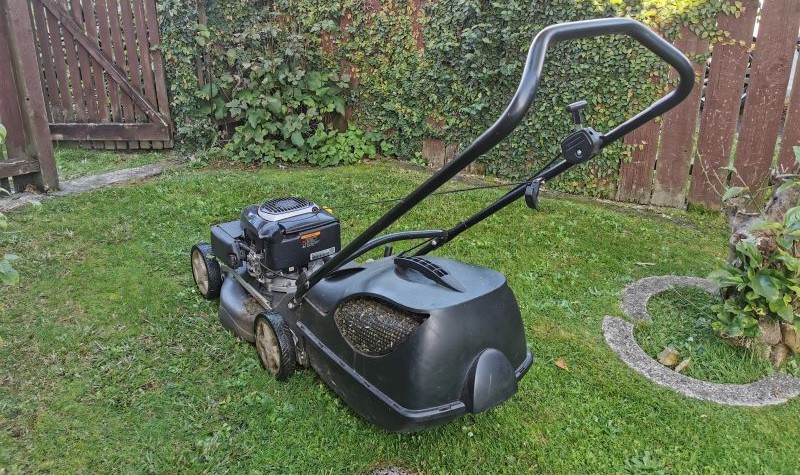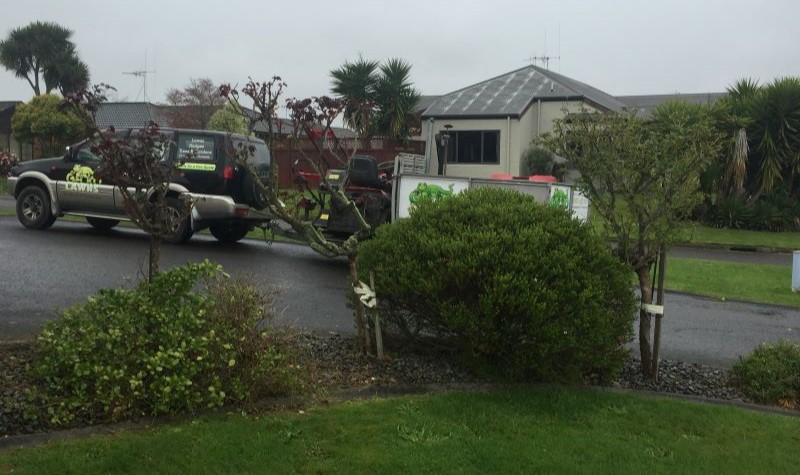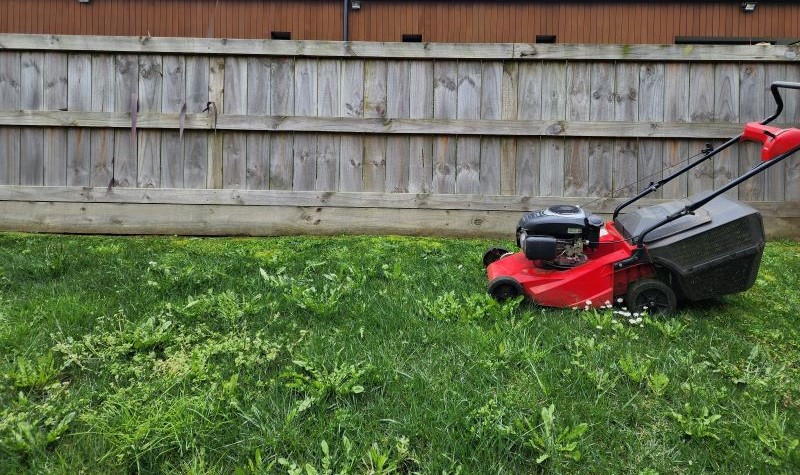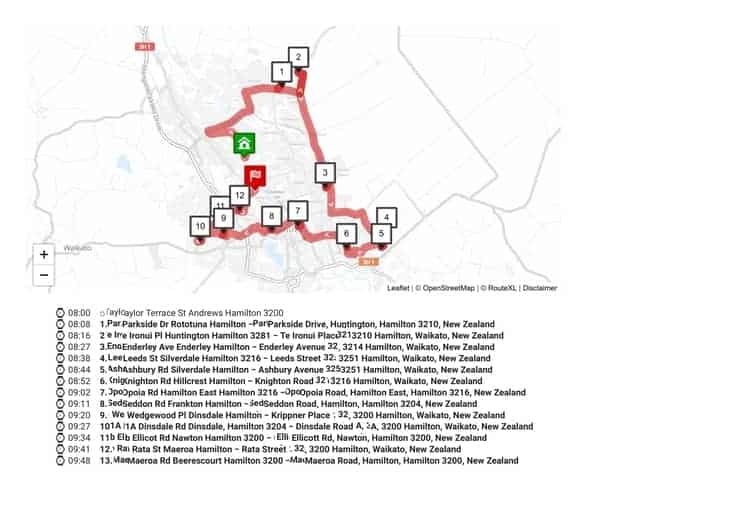How to Buy a Lawn Care Business.
Table of Contents
Why buy an existing lawn care or landscaping business?
Are you looking to buy a lawn care business? Are you wondering how on earth you navigate all those lawn care businesses for sale and separate the good from the bad? I aim to help you as much as possible by pointing out what I would be looking at and the questions I would ask if I was purchasing a lawn care business.
There are three ways to start a lawn care business, each with different advantages and disadvantages. This article focuses on buying an existing business, but I will list the main methods here and their pros and cons for clarity.
Start your own lawn mowing business.
Pros = The cheapest method, No franchise fees, don’t have to accept any work you don’t want.
Cons = Can take a long time, no income to start, less chance of success
Buy a lawn care franchise
Pros = Instant income, More chance of success, pre-existing systems and support, a proven business model
Cons = Ongoing franchise fees and must work within a rigid system, can be hard to sell
Im am not saying that you cannot have a profitable lawn care franchise, however, you will be paying franchise fees for life.
Buy an existing lawn care or landscaping company.
Pros = Instant income, Instant business, good chance of success if you buy well.
Cons = You could buy badly and lose money.
This article is here to help you evaluate buying a lawn care business privately and maximize your chances of success by buying a good business.
The good thing about buying an existing business is that it will give you immediate income, and you can grow your business from there.
Buying an existing business can always be tricky, and you must enter this process with your eyes wide open. There are tell-tale signs if something is not right, and I want to use my hard-learned experience to help you avoid them.
How am I qualified to tell you how to buy a lawn care business?
That is a good question to ask, and if you have thought that already then you’re vigilant. Keep thinking like this when you are evaluating businesses, and your chances of successfully buying a good business should increase.
How many lawn businesses have I bought? Well, the answer is none. How many have I sold? The answer is that I have lost count. I have been building and selling lawn care businesses for so long can no longer remember. I have been in this industry for over thirty years, but it was around five years before I sold my first business. I have sold at least two businesses a year since then. For over two decades, I sold at least one business a year.
I have mainly sold residential lawn accounts. I have never signed a restraint of trade as I have not sold my main business, but I have never taken a lawn care customer back once the account was sold. I have half a dozen names of my recent buyers that I have used as references to selling pre-packaged account packages that started at $1000 a week turnover and increased the size of the packages from there. I sold over 350 lawn care accounts last year to four different buyers.
Out of all the accounts I have ever sold, only one has ended up in a court case. Which I won.
In the early days of selling lawn care businesses, I made a lot of mistakes and sold some less-than-stellar accounts. I learned from this and know how to handle the process from start to finish with a loss rate of less than five per cent. Before you ask, sorry, I am no longer doing this, so I have nothing for sale. However, you have gained already because I would not be writing this blog if I were still actively doing this.

What kind of business do you want?
Please note that all figures I give here are for demonstration only. I tend to use industry averages rather than my own figures, as every location is different, so do some of your own homework here.
If you are looking at a full-time income, you will want around 80 accounts or a turnover of at least $1500 a week. If the seller has an income of $1500 a week and has 50 or fewer accounts, you will need to look into this. I can think of a couple of reasons straight away why this may be the case.
- They have very large properties and use big mowers – This should become obvious when you look at the business. This is a good reason, as it makes sense.
- They are offering a full-service lawn care service – They are not just mowing the lawns. They are doing the gardens, tree work, fertilization and all those other outside jobs that their customers may want. This requires a closer look.
If they offer a full-service lawn and landscape package, then the money is still there, but you may want to look in more detail at their services.
- Are they making money on all their services, or do they have some loss leaders in there to keep the client happy?
- Are the services pre-booked or done on an ad hock basis?
- Were there any big one-off jobs that boosted the income that year?
There is one major drawback to buying a full-service business. Your clients will be maxed out. They are already buying all your services, so you cannot sell them anymore.
Did you know that one of the best sources of new work for a growing lawn service business is from existing customers? A pre-existing customer is much more likely to buy another service from you than go somewhere else. You have just missed out on that option.
Think about this. Would you be better off buying 50 full-service accounts that you cannot sell anything new to or 80 lawn-mowing-only clients that you can send offers to saying, “We are fertilizing” or “Do you want any hedges or tree work done”? The lawn mowing-only clients, if contacted regularly, could boost your income by 20-30%. The full-service customers will not increase your income any more than the fixed amount they already pay. You have just missed a huge marketing opportunity.
Buying a lawn mowing-only business and offering new services is a great way to increase your new business’s turnover instantly.
How to spot those Red Flags.
I like to believe that people are honest, and I tend to expect that, but unfortunately, honesty it is not as common as it should be. There tend to be plenty of people who just want to make a buck and don’t really care about the consequences. Once they have got your money, they will disappear, and you may have bought more than you bargained for. Here are some simple things you can do to avoid this happening to you.
Beware of scams – I have met someone who paid big money for a written list of lawn accounts because they were half market value. It was such a bargain he didn’t even check it out properly. After paying for the list and being told by the first fifteen people after meeting them that they had no idea who this guy was and they had never met him, the purchaser gave up. The list was a fake. There is a saying “If something sounds too good to be true. It properly is.” Here are some of the first questions you should ask yourself when the price is well below the market average.
- Is the business real?
- Is their truck sign written?
- Can you find them on review sites?
If someone has a business that they need to sell in a hurry because they are leaving town, you are probably better off letting them leave without your money.

How to test out the viability of a business.
If someone is selling a business, they may have a legitimate concern driving around and showing every possible buyer ten of their lawns. There are a couple of issues with this.
- The person they just showed the lawns to could come back and tell the customer their current guy is leaving and then underquote the lawn to try and get the job for themselves. This is shooting themselves in the foot because if the account lasts for a while, they will be financially worse off than they would have been if they had just bought the account. But then some people don’t think about the long term.
- The other concern is, how would you feel as a new buyer if you knew that ten people had looked at your lawns and remembered how much you were charging? Then consider that five of those ten people have bought or set up businesses near you. How secure about your purchase would you feel then?
The seller is in a bit of a catch-22. You want to see the lawns, but the seller doesn’t want to show everyone, and they have a good reason for this.
The solution is for you to ask if you can work a day with them. Also, you pick the day, not them. When you ask them questions, ask in the truck when travelling between jobs, not at the jobs, because you will want to be (discreetly) timing yourself on lawns. At the end of the day, work asks them to tally up the work that was done that day and give you a figure for the day. Take the amount earned and divide it by the hours worked. If the total is over $60 an hour, the business could be worth looking at, and you might want to book a second day before deciding. Please note the $60 an hour is a two-person rate. If you were working by yourself, you would be aiming for $45 per hour.
Also, think about how it felt when you went out.
- Did it feel natural, or did it feel a bit phoney?
- What was his gear like?
- Did it look like it had been serviced recently, or did the gear look rough?
- Check the truck window. Is there a current oil change sticker?
If they take the truck in for servicing, they probably service the mowers on a regular basis as well. After spending a day with the seller, you should start to get an idea of what kind of business they run.
If they are not selling equipment, then that is a red flag – If they are keeping the equipment, that is probably because they want to continue mowing lawns. If they cannot give you an extremely good reason as to why they want to keep the equipment, you might want to avoid them. However, if they are selling some of their accounts and have already told you that they will continue working on their business, then that is not so bad. You will still need to be careful, though. You will need to do some digging if they are just selling some lawn care accounts.
- Have they ever sold lawn care accounts before?
- If so, can they put you in touch with a previous buyer?
- What is the reason for selling the lawn care accounts?
If they have too much work and are reducing their commitments, then they will sell you the lawns with the lowest return (if they keep accurate records), so you will buy accounts they do not want. This is not always a bad thing. When we sold lawn care accounts, our hourly rate was high, so the accounts we sold were average for the industry, not underpriced. You will have to use your own judgment there as to how the seller appears to be running their business.
They could also sell you accounts on their service area’s peripherals. Again, this is not always a bad thing, and you can get some good-paying lawns this way, but be aware of possible spread. If the service area is 20 miles in diameter, you may find a massive drive between some of your lawns.

Don’t buy a business that is too big to handle – Be aware of your personal limitations. If you are not fit and have not done the work before, you do not want to buy 100+ accounts; you could be buying a fifty-hour work week. Your first couple of weeks could feel like it is killing you (you will lose a few pounds, though). If it rains a couple of days, you could end up losing customers due to how far you are running behind.
You are better off buying in at a 30-hour work week and building from there. This will give you time to acclimate and allow you to start building the business the way you want. You could even drill down and offer tree work, hedges and gardening to the existing customers and build your income at no extra cost. Mowing lawns for four days a week and keeping one day for other work is a great stress-free way to run your lawn care business.
Is one customer paying a disproportionate part of the income? – In business, there is a rule. Never take more than a third of your income from any one source. If you have a large customer who pays a third of your income and then cancels, your business may survive with good management. If a customer is responsible for half your income and cancels, then your business will probably not survive.
The whole point about having a lawn care business is that you have a regular cash flow, and with 80 customers, you have spread your risk. Be very careful buying an account like a retirement village that requires a day or two every week. This kind of account is not worth buying at full price. If you are going to go ahead and make an offer on a business with a customer like this, then you should negotiate hard. It is not an ideal account for you.

What questions should you ask when buying a lawn care business?
Why are they selling?
Always start with this question.
If they say they “want a change of direction, ” look closely at the business. A change of direction could mean the business doesn’t run right. How long have they had the business? If they have not been doing it long, then that’s a red flag. Don’t take their word for the amount of time. Do some background checking. If they have a website, then how long have they had the domain name? You can find this out on ICANN by doing a WHOIS search. Does the business look well run? Approach this one with caution.
If they say they are moving out of town, then this is much better. Don’t take their word for it, either. Do a bit of research. You can usually tell when you are visiting someone’s place if they are getting ready to shift. Look for telltale signs. If they are selling their house and business, then ask them what they plan to do if the house doesn’t sell. If everything is above board, then you might get an excellent business this way.
If they are retiring after thirty years in the business, this may seem like a good buy, but when was the last time their price incrested? Are they running on yesteryear’s prices? They can think their business is fantastic and can overvalue it because they have an emotional attachment. Be careful here. Work a day or two with them and mentally note the mow times. The customers will be more loyal, but the profit may be down.
This could be okay if they have turned 50+ (like me) and want a second career. This happens, and the work can get hard after 50. That would be an acceptable reason for selling a business. Again you will need to decide how honest you think they are being with you.
Health reasons – If genuine, this can be a great opportunity to get a good business at a good price. If you do go ahead and buy, you may find the seller to be a wealth of knowledge and a great help when you take over the business.
They need money – Not always the best reason. You will need to look closely here.
Listen to the reason they give you and decide if it sounds reasonable to you.
What are they selling?
The seller needs to be clear on this. You want to know things like
- What is the weekly turnover
- What was the turnover for the last three years? – is it going up or down?
- How much do they pay themselves?
- How many hours do they work in the field and admin a week?
- How many customers do they have?
- What area does the business cover?
- What equipment is going with the business?
- How did they arrive at their selling price?
- If they are keeping their mobile number, will they be passing quotes through to you?
How long have they been in business?
That is a good number if they have been working in the business for a couple of years or more. Do make sure you check the information they gave you. You can do the WHOIS search and do a search on their business name to see how long it has been registered.
If they bought the business six months ago and now want to sell it. then that is a warning signal. You could arrange a pay-as-you-mow buy-out, but I wouldn’t pay this kind of business upfront. If they don’t have a sudden change in family circumstances that have made the change necessary, then it means they are having problems with the business. They may have bought badly or run the business in a haphazard manner and lost customers.
You might want to offer a deal where you pay as you go and give them a payment each week of the turnover for four to six weeks. If they are struggling and losing business, this could be a win-win for both of you.
I suggest this method because if a business has changed hands twice a year, the customers are more likely to cancel and move on.
Ask to see the books or at least bank statements.
Do they have an accountant? Can they produce their books with their taxable income for last year? Have they got a P&L (profit and loss) statement for the last financial year? If not, you will need to see their bank statements at least.
If they have no real books but can produce bank statements, you can still look at them. You can offer less for the business as they will have fewer possible buyers. Anyone requiring finance (without available equity in their house) cannot look at this business as a bank will not loan without books. Go through the bank statements. Do they make sense? Do they gel with what the seller is telling you?
If they have no books and little in the way of bank statements because they tell you they do half their work for cash, then I would avoid them. If they are that dishonest in running their business, how honest do you expect them to be with you? The lawns are probably underpriced, and the business is being badly run.
What has the existing owner told the customers?
This is good to know. You should never directly tell a lawn maintenance customer that you are selling their lawn. It tends to get them upset as they will feel you have no right to do that. If he has said something like, “I am finishing up mowing lawns and are selling my business”. This is better.
I found that the best way to sell a lawn care business and retain most of the accounts is not to say anything until I have found a buyer. Then tell the customer you are finishing up, but luckily you have someone who can carry on and do the same job for the same price. This reduces fallout and makes the whole process easier.
The chances are this is not how they have gone about it, but once they tell you about what they have said to the customers, it will give you a better idea of how the sale might go. The sale process may not go well if they are abrupt and do not seem to have any sense of diplomacy.

Will they offer a partial refund if the account is cancelled within eight weeks?
I mainly dealt with selling accounts, so I had a replacement policy for any account lost in the first four weeks (for any reason except bad workmanship or management). Not a lot of sellers will offer this. You could at least ask them about holding back 10% of the sale price and settling this after four to eight weeks after deducting lost accounts from it. Most sellers will not agree to this, but it’s worth a shot. Doing this may also give you insight into how much the seller thinks you might lose in that time.
What is the ratio of slow payers?
You will want to buy a business where the owner does not let any debt slide and actively chases overdue accounts. If there are a lot of bad or slow payers on the books, this will affect your cash flow. Once a customer has developed bad payment habits, bringing them back to on-time payments can be tough. Ask the seller how they handle their accounts and how they manage slow payers or bad debt.
How far apart are the lawns spread?
Does the lawn care business owner do a lot of travelling? They should not be spending any more than 10 minutes going from job to job. They are losing money if they drive halfway across town to do a lawn. I find that for your average domestic lawn, you should spend 10 minutes every 40 minutes travelling. For example, 12 lawns a day equals 2 hours spent driving. This is a figure from my business; other businesses may be different, so treat this as a ballpark figure.
Are there a lot of accounts on the peripherals of the area they cover? If this is the case, it may require closer examination. The more time you spend travelling, the less time you spend actually producing income.
If you want an idea of how travelling affects a lawn care business, then go to “What is the Best Way to Plan my Daily Lawn Care Route?” and this will give you a bit of background on this topic
Are they offering free extras?
Do they offer to take garden rubbish away and not charge? Do they offer any services for free that they should be charging for? If this is the case, you may end up having a run-in with customers when they ask you to take some garden rubbish away or trim that tree a bit and don’t expect to pay because they never paid the other guy.
You start charging, and they start looking for another lawn care guy. The ironic thing is they probably won’t be able to find anyone who does this for free, but they will move on anyway because that other guy never offered them the service for free, so they feel they are getting a better deal from them.
Are there any lawns that need to be done on a certain day?
This is normally not too much of a problem during the weeks as long as you have other lawns in the area. The big issue here is Fridays. You will find that some people want Friday cuts so their lawn looks good on the weekend. Again this is Okay as long as you are mowing there on a Friday and they are not out of the area. We have a few Friday lawns (I will be heading out to do some in about an hour), but we only do them in one upmarket area in town. These are high-paying lawns in a nice area who don’t mind paying a bit more. If the seller has a lot of Friday lawns, what area are they in? Does it make sense to have them, or are they a liability?

Are there any customers with special day and time requests?
These might be people who work the night shift and want you after lunch or someone who wants you on a Wednesday between 1-4 pm. You may be able to live with the shift worker but avoid the second one like the plague.
These kinds of customers spell death to productivity. You can lose an hour and end up driving across town trying to fit a lawn like this. Make a note of how many of these customers they have. You will need to drop these accounts in order to run a profitable business. If they have a lot of these kinds of customers, you do not want the business.
Is there any training available?
If you have never done this kind of work before, a bit of training would be good. An acceptable arrangement would be for you to work with the seller for one week before the takeover and have them work with you for a week afterwards. This allows for you both to work together for a couple of weeks with minimum interruptions to the business.
What equipment is going with the business?
Ask them for a list of the equipment they will supply with the business, and you will want the following details.
- Make and model and type of equipment
- Approximate age of equipment
- Mileage on vehicles
- Hours on any equipment with an hour meter.
Once you have this, sit down on your computer and look for each piece of equipment on the secondhand market. If you can’t find an item, try to make an educated guess. Now work out how much it would cost you to buy the equipment on the open market.
That is okay if the cost is the same or less than that amount. If the seller’s asking price is higher than that actual value, then make a counteroffer at market value. Doing this is not a deal breaker but will help you evaluate the equipment. Also, while you’re there, do a quick check of reviews of the piece of equipment. If there is a common problem with the tool, check the one they have for it.

How much should you pay for a lawn care business?
Buying a lawn care business is like buying a boat. I bet you have never heard that before, but it is true. Nobody wants to buy a boat in mid-winter, so they are cheaper. Everybody wants them in the summer so they are more expensive. I’m not suggesting that you buy a lawn care business in the middle of the winter (that would be stupid) but do take note of how far along in the growing season you are. Buying a lawn care business at the tail end of the season is a lot riskier than buying one in Spring.
Of course, you will have a conflict of interest on the price with the seller. You want it as cheap as possible, and they want as much money as possible. In a lot of cases, their business is their baby, and they will be overvaluing it for emotional reasons. They will genuinely feel it is worth more.
When they go to list their business for sale, the current price of lawn care business around them can be a reality check for them. They will realize they cannot list their business at their ideal price and never get a buyer. Therefore a lot of sellers will feel that they have had to compromise once already. This can make negotiations difficult.
There are a lot of schools of thought on how to value a lawn care business. The biggest variation is goodwill, an intangible asset, so it can be difficult to value. These are a few of the more common methods of putting a price on these businesses.
- $200 per account – Some buyers feel that as the cost of getting an account yourself is around $200, you pay no more than $200 per account. This is not really going to work. I cannot imagine someone selling 80 lawn care accounts for $16000. Still, if you come across a deal like this, do let me know.
- Four to six times profit – This is a possibility. If someone is paying themselves $80K a year from their business, they may want around $320K or more. A company like this could be turning over $150K per annum. It could be worth looking at, but I think it may be overpriced.
- 10 times per cut amount plus machinery – A lawn care business turning over $1000 a week would be worth $10K plus equipment. I would seriously look at any business sold using this method, as I feel it would be a little underpriced.
- Three months turnover plus machinery – This would be a more realistic price. This method is a standard accounting method for valuing goodwill. I think this can be a perfect place to start. Some sellers will try to stretch this period up to a year so a business valued on monthly turnover could range from $12-$52K on a turnover of $1000 a week.
As you can see, the figures are all over the place, and a quick search on Bizquest or businessesforsale.com will confirm this.
I would list all the businesses in my area in a spreadsheet. I would then make some consistent figures, such as
- Total yearly income
- Amount paid to owners as drawings
- Profit
- Selling price
I would then list them all to find out the underpriced business first. I would also use these figures to negotiate the prices of the overpriced businesses.
You need to set your own price and remember that a business is only worth what someone is prepared to pay. (not the advertised price)
If you would like some more help in this area, you could sign up to Lawnsite, which is the largest free lawn care forum in the world. List the features of the business you are looking at buying (without naming it), and then you can get honest feedback from other lawn care business owners as to what they would expect to pay for a similar business. This can be very insightful.
Also, bear in mind that the purchase price is not dead money. If you run the business well, you can get that money back when you sell the business.
What are the options available with financing?
There are a few different methods to go about financing.
Some sellers offer “Seller Financing”, where they will finance their business’s purchase. This option can be an excellent way to purchase your lawn care business and shows that the seller has faith in their business.
If you are going to approach the bank, there will be a couple of ways of getting finance.
Self-finance on the business – you are going to need good records from the lawn care business you are looking at buying. They will need to use an accountant, and the bank will want P&L statements. One good thing about this is that the bank will not lend if they find anything they don’t like in the paperwork. The bank will not lend if they do not think you will make enough profit to meet the repayments. If you depend on this method, remember that the bank is doing its due diligence, not yours. You will still need to do this yourself.
The other thing to consider is that this is the only way to get the finance. You may miss out on the perfect business for you simply because they do not have the correct records to give your bank, or they may find a cash buyer, and the sale will be easier for them that way.
You could get a line of credit from the bank – This is the more risky option as the bank will not be so concerned with the viability of the business you are buying as they will be leading against assets you already own. You will have to do your own investigations and walk into the purchase with your eyes wide open.
Remember, no matter what you do, if you borrow for the business, you will most likely be putting your house on the line, so do be careful here.
Time to do your own Due diligence on the lawn care business.
When I sold lawn care accounts, I used to supply a piece of paper with streets (no numbers), how long the lawn took to mow (on average) and how much we charged for the lawn. If you can, try to get something similar from the seller you are talking to.
If you can do this, now you will be able to work out an average travel time. Start off by going to RouteXL type in all the streets with a default number of 1. If you have more than one lawn on the street, put the second lawn down as two etc. You may have to pay a one-off fee of € 5 EUR if you are going to put over twenty addresses in there. Once you have all the streets in there, pick a start and finish street.
Then press the “find route” button. Look at your start and finish time and divide it by the number of lawns. Your maximum average travel time should be less than 10 minutes. This formula will not be perfect, but it is helpful. The lower it goes after this, the better. That is a good thing if you get a six- or 7 minute average travel time. It doesn’t mean the lawns are priced right, but you have minimum travel time.

How are their reviews? – Check their reviews. Search for the name of the lawn care company + review. See what the customers have to say about the seller. This is a good sign if they have a lot of good feedback.
Don’t worry about the occasional one-star review. You can’t please everybody, but if there is a pattern of bad reviews, check that out. If a lot of people have said that the owner is abrasive and hard to deal with, you might want to avoid them too.
Do a Google search on his name plus the town. – Does anything come up?
- Is it good, bad or neutral?
- Does he have a LinkedIn profile?
- How does that look?
- Are there any strange gaps in their timeline?
Go out and work with them for a day – Try to choose the day yourself. Doing this will reduce the chances of them getting you to work with them on their best day.
Is the business debt free? – You will want to get an attorney to check out the business to make sure it is not carrying any undisclosed debt that could be passed on to you with ownership.
How good is the Non-compete agreement? – Another thing you need to do is have a good look at the non-compete agreement. Is it acceptable? If you disagree, you need to say something before going any further. These usually run from one to two years, depending on what you are buying.
Is the seller acceptable with a meet and greet before you take over? – This method is where you go around and meet every customer on the books. Doing this can be exhausting but also extremely valuable. If you do this, it will take you about 15 minutes for every customer. That means that meeting 40 customers could take you ten hours.
I have split this over two to three days when I have sold large rounds. You will not catch everyone home, but the customer should know you’re coming around, so if they are not home you can walk around with the seller, and they can go through the job with you.
The meet and greet will only go ahead if you are proceeding with the purchase. Usually, I require 50% down before we do a meet and greet and the other 50% as soon as we visit the last property, so I expect that you would need to make a similar arrangement.
When I was selling, I did this all the time. My logic, as the told the buyer, is that I could get a creative accountant that can show them anything on paper, but that does not equal a business. However, If we go around and meet 50 customers who all agree that you are going to mow their lawn, then you have a business.
Would the seller be prepared to use an escrow service? – If the seller is entirely above board, they shouldn’t have a problem with that. I probably wouldn’t worry about a smaller purchase, but if you are spending a lot of money, then you may want this as an option. You can go with a company like Escrow.com, and of course, you would offer to pay the escrow fees. They are not expensive.
Would you be okay if you lost half the customers? – I know you won’t be okay with that, but I am talking financially. This exercise is to help you imagine the worst-case scenario. Would you be able to tighten your belt, carry on and rebuild? Would you be able to afford the repayments? Would you have enough savings to cover the slump? If so, then you will have an advantage.
Final steps once you have bought a lawn care business.
Your standard of work needs to be as good or better than what the customers were receiving – You need to resell the customer by being polite, reliable and doing a high standard of work. Customers will put up with the same standard of work. They will be pleased if the standard is a bit higher. They will probably go somewhere else if the standard drops.
A term in marketing is “the path of least resistance.” This term means that if someone has to opt out of something, they hardly ever do it actively. This reason is why one-month free subscriptions work so well. Most people do not cancel the subscription before the payments start, and then the customer keeps on paying even if they don’t use the subscription until one day, they see the charges on their credit card and take the time to cancel it.
As long as the standard of work does not decrease, the customer will most likely stay. To them, this is a better option than the effort of cancelling the agreement, ringing half a dozen companies, arranging quotes and then going through them all to find a new lawn care company that may or may not be any good.
You will probably need to raise some prices – Don’t do this straight away. I suggest that you write down your start and finish times for all of your lawns. Keep track of the times on a spreadsheet. Do this simple formula on the worksheet (cut price) divided by (cut time) = 60. This equation will give you an hourly rate. Sort the lawns by hourly rate and price increase the worst one to bring it in line with the hourly rate you want. Do this every week; if they cancel, replace them with a new lawn. (I am assuming you are doing some advertising here).
You are probably going to lose 10% of the accounts anyway – Don’t panic. This is normal. This kind of loss will be no reflection on you. Some customers will leave anyway. Just knuckle down, advertise and focus on building your business. You can read more about marketing in this post, “21 Great Ways to Market Your Lawn Care Business.”
As a closing comment, I would like to stress that all the information in this article is based on my personal experiences and is my personal opinion only. I am not giving any legal advice, and if you are going to go ahead with the purchase of a lawn care business, you should always seek professional advice first.
Get tips & tricks on how to grow a profitable lawn care business delivered to you inbox every week.






Leave a Reply